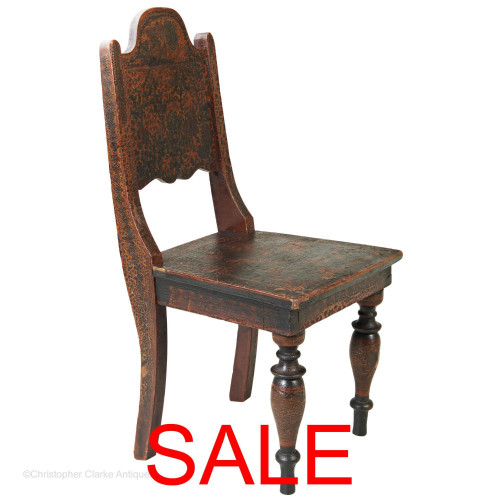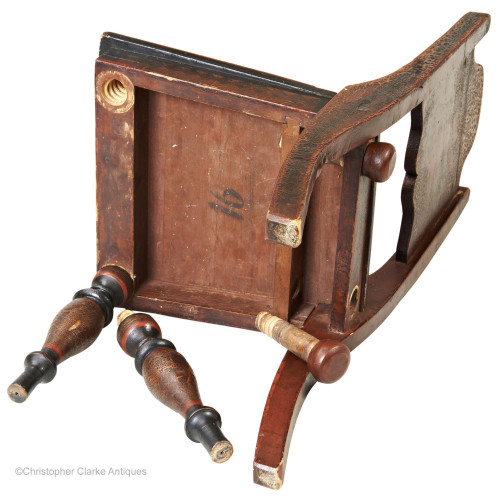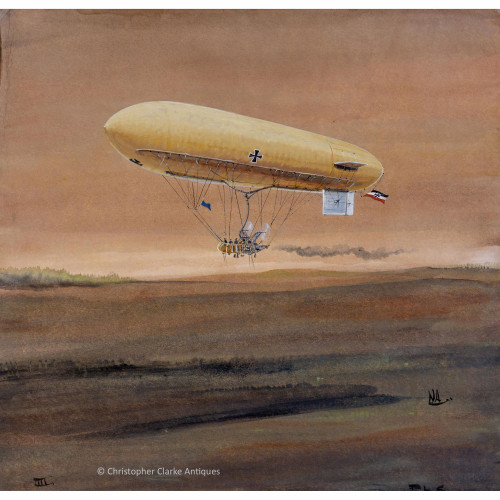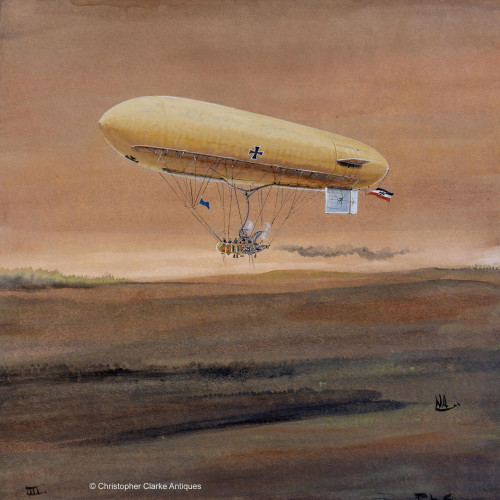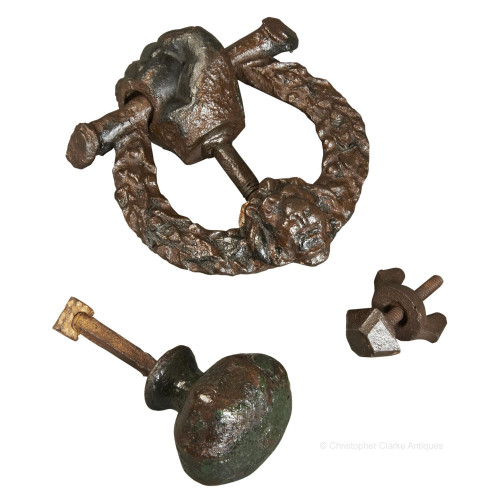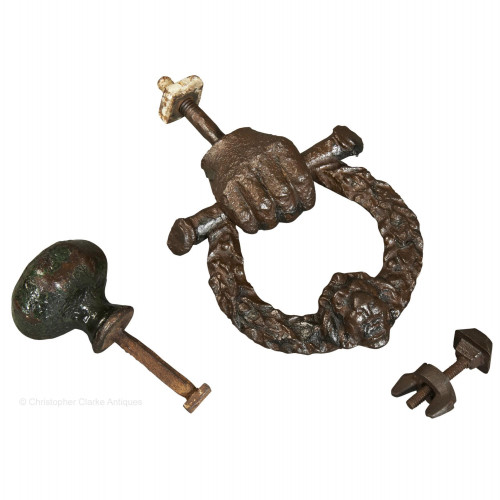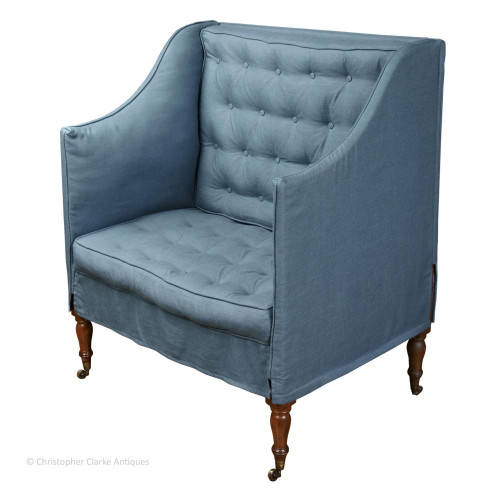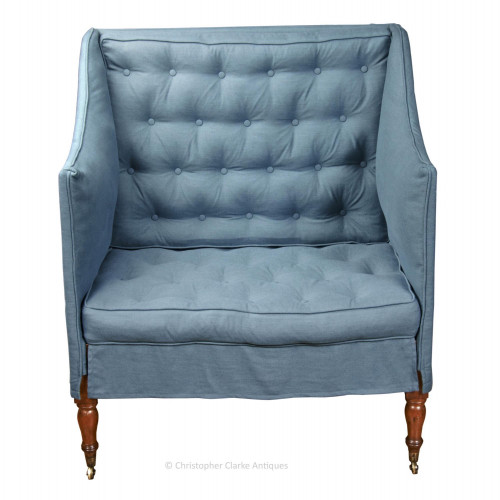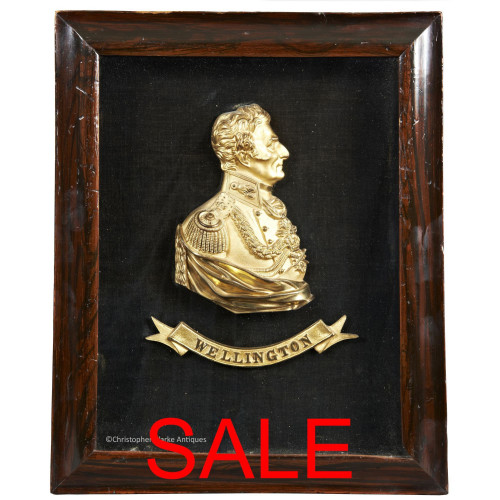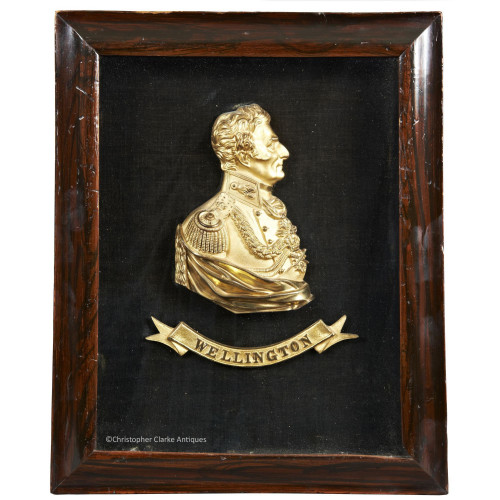Antique Portable Reclining Chair by Ross & Co.
Antique Portable Reclining Chair by Ross & Co.
Ross were granted a patent for their iron Portable Reclining Chair on the 11th August 1853 and it quickly followed on from their similar patent for a Portable Combined Chair and Couch of the 1st of July.
Although made of iron to help it withstand the rigours of travel and hot climates, Ross still bowed to the fashion of the day by giving the chair a rounded back. The chair's back is adjustable to 3 different positions by sprung triggers under the arm pads that allow it to recline whilst sitting. It has been re-upholstered in a green material that is a close match to remnants of the original upholstery found on the chair. Most of the original green paint to the frame remains and although this might seem an obvious colour for military furniture, this is not a consideration we have seen on 19th century or earlier campaign furniture before. To fold the chair, the brass bolts to the arm's uprights are released and the seat frame, which is only fixed to the back, can be lifted at the front to allow the X frame legs to fold. Although the seat is padded, the replaced cushion is removable to allow the chair to fold further and so pack into the case.
This is the first iron chair by Ross we have illustrated and it can be considered rare. It is further enhanced by retaining its original packing case which has 4 turned legs to convert into a table, much like a Douro's packing case.
D. Erskine is painted in white to the top of the packing case and Major The Hon'bl D. Erskine is written in ink to the side by the iron carrying handle. David Erskine was born in 1816 to the 2nd Baron Erskine of Restormel Castle. He purchased the rank of Ensign in the 51st (Kings Own Light Infantry) on the 31st July 1835. He bought his Lieutenant's rank 3 years later and progressed to Captain in 1845 and Major in April 1855. He then joined the Natal Carabiniers, gaining the rank of Lieutenant Colonel before becoming Colonial Secretary of Natal by 1860. The faded stencil to the case's lid interior gives the name of Ross & Co. and address of 8, 9 & 10 Ellis Quay. The company changed name from E. Ross in 1860 and had moved to this combination of address numbers in 1864. Erskine married twice and had 9 children, a number of whom seemed to have settled with him in South Africa. His 2nd son, St. Vincent Whitshed Erskine, was an early explorer of Gazaland and is cited with discovering the source of the Limpopo River in 1868. He also held the post of Surveyor-General of South Africa.
Brawer illustrates the patent drawing for this chair in British Campaign Furniture, Elegance Under Canvas and it can be considered an important piece of travel furniture for not only its rarity but also because it still has its packing case. Circa 1865.
Dimensions:
Circa 1865
Iron & Painted Pine
Ireland
Ross & Co.
RELATED ITEMS





